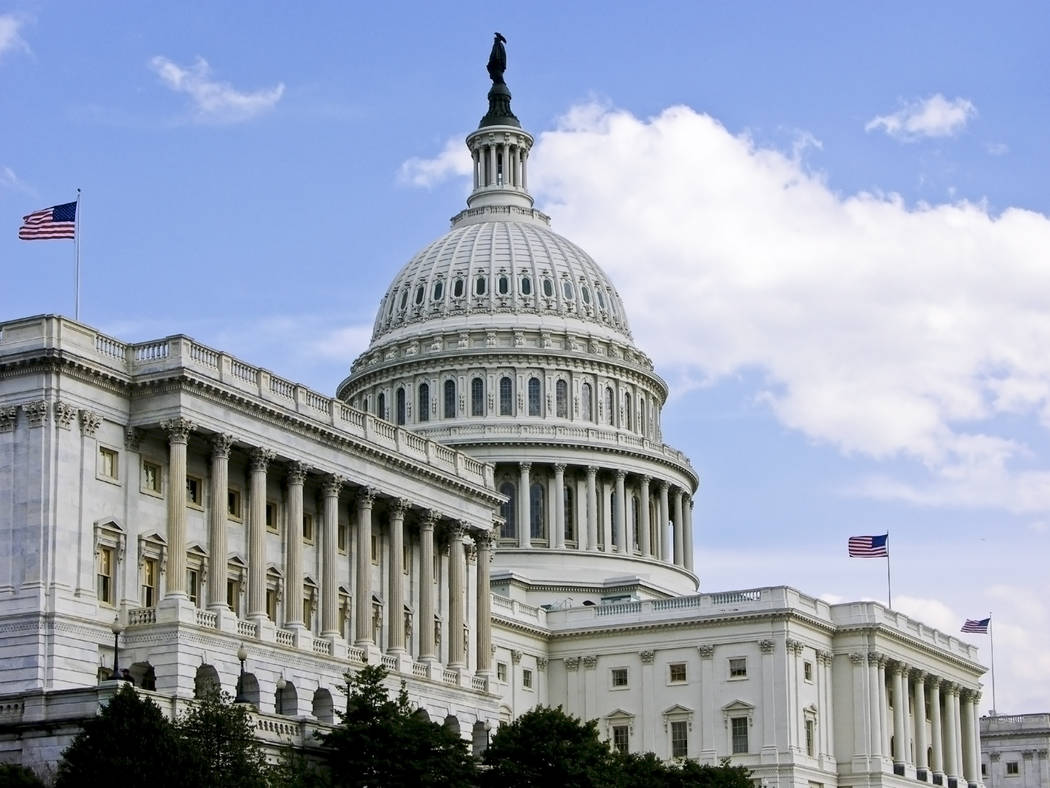EDITORIAL: Forcing Congress to actually do its job
The Trump administration has approached the current government “shutdown” in a unique manner.
Usually, public entities attempt to make budget disruptions as painful as possible for the taxpayers in order to sway opinion in their favor. This is a tried-and-true tactic of school districts, which have found that cutting extracurricular activities such as sports will shock parents into agitating for tax hikes. It was also the preferred strategy of the Obama administration, which during a 2013 shutdown opted to shut down parks and national monuments to foment a public uproar.
Donald Trump, however, has so far rejected that game. Instead, the White House is doing “everything that is within their power to demonstrate to people that the shutdown doesn’t need to affect their daily lives,” Paul Winfree of the Heritage Foundation told Review-Journal White House correspondent Debra J. Saunders. “Because it doesn’t affect their everyday lives.”
Not surprisingly, this has many Democrats up in arms, as does everything Trump. Why, what might happen if too many private-sector taxpayers realize they can actually get through their daily routines without the help of “nonessential” federal workers? Might some even begin to question the need for the massive administrative state that now dominates the executive branch?
Which brings us to the REINS Act.
Last week, a group of five Republican senators — including Rand Paul of Kentucky and Ted Cruz of Texas — introduced the Regulations from the Executive In Need of Scrutiny Act, which seeks to harness the bureaucracy by forcing Congress to reassert its authority as the sole legislative body and as a check on the executive branch. For too long, Congress has farmed out the heavy lifting to unelected bureaucrats and the judiciary, passing lazy, vague statutes and leaving it to regulatory agencies to interpret the law and to the courts to sort it all out. Judges, however, are often reluctant to challenge the authority of executive branch agencies. As a result, unaccountable federal regulators wield enormous power and have acquired de facto legislative authority.
“Although administrative agencies act only with authority granted by statute, legislative language is often imprecise enough to allow agencies considerable discretion,” noted Peter J. Wallison, who has written a book on the subject, in an April op-ed for The Wall Street Journal. “Too often this is by design: Lawmakers take credit for ‘solving’ a problem by passing a law, then blame the agencies for making the unpopular decisions Congress evaded.”
The REINS Act, Reason.com reports, would require that Congress approve every major regulation — defined as those that will have an annual economic impact of at least $100 million — before it may enforced.
It’s an excellent idea and would go along way toward restoring the separation of powers doctrine, which the founders considered critical to holding off tyranny.
It’s true that many members of Congress might be nervous about being forced to go on the record concerning potentially controversial regulatory edicts. But who cares? Just like the government shutdown, the REINS Act would provide voters with a mass of useful information and might even foster a more robust debate about the proper role and scope of the federal government.

















